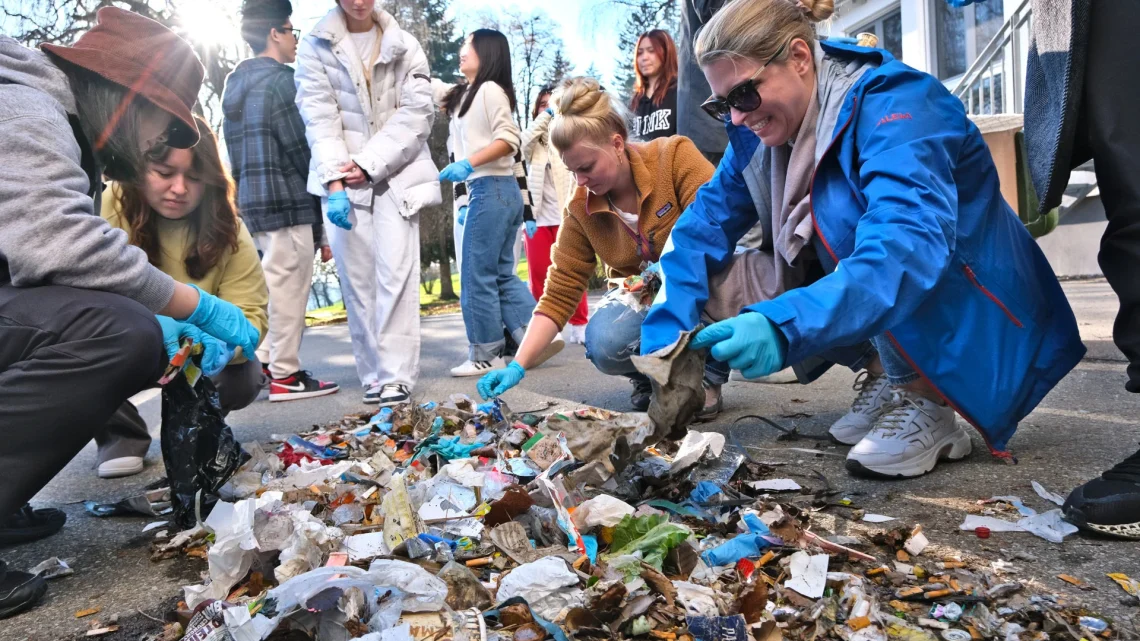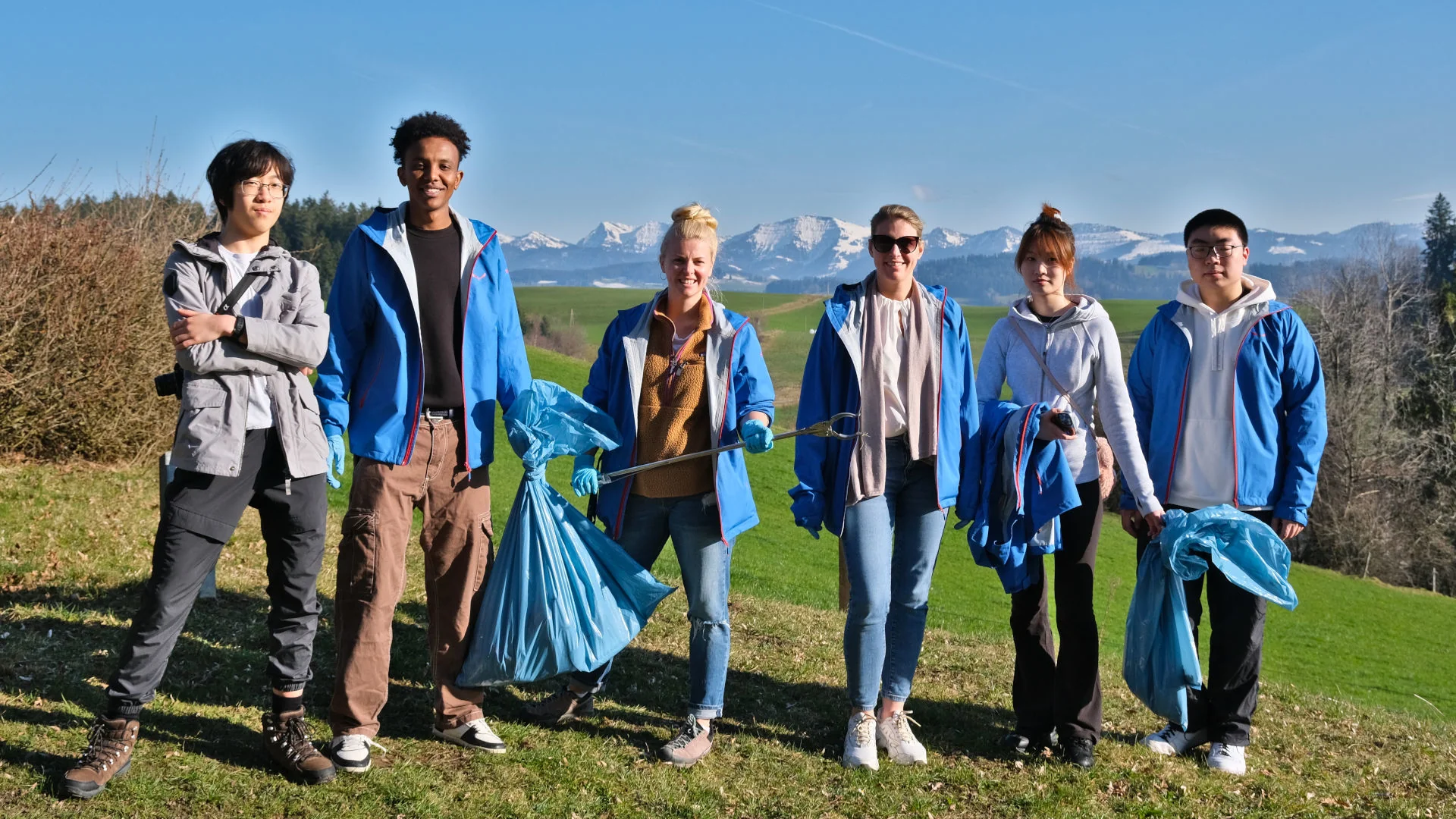Lindenberg Students Engage in Sustainability Project18. March 2024

During each five-week course phase in Lindenberg, students embark on a dedicated project week, immersing themselves in a spectrum of activities centered around a predetermined theme.
At the same time, the topic and its dimensions are discussed in class. Earlier this year, the topic was “Healthy Food” and now in March it was “Sustainability”. The latter topic is particularly important, as the Humboldt-Institut Lindenberg became the first German member of the “Green Standard Schools” association in December 2023.
During the project weeks, students have a say and can choose their priorities. For the topic of “Healthy Food”, they could decide whether they would prefer a meat-free, low-sugar or vegan diet at the school canteen.
In the recent “Sustainability” project week, they chose both options, energy saving and reducing food waste, and collected ideas on how they could save energy together. Suggestions spanned from basic practices like switching off lights upon exiting rooms to more nuanced approaches such as minimizing standby power usage and optimizing heating settings.
The overarching objective of the project weeks is twofold: students should build up knowledge about the current topic, both in terms of language and content. To this end, the students first watched the documentary “Plastic Fantastic” about the flood of plastic and its worldwide effects. In practice, students and staff members embarked on a hands-on garbage collection initiative around the institute, which they then separated and disposed of properly.
The following day, they embarked on an educational excursion to a hydroelectric power plant in the center of nearby Kempten to gain firsthand insights into green electricity generation from hydropower.

The leitmotif of the project week is also reflected in the classroom: In Fabian’s B1 class, the students first looked at the definition of sustainability, read and discussed newspaper articles about palm oil and its use in everyday products, as well as natural disasters. They typed new vocabulary into a vocabulary app and discussed the delicate balance of the sustainability triangle between ecology, economic viability and social equity.
Similarly, sustainability also came up in Pelin’s A2 course. Students talked about waste and different materials as well as cultural differences in waste separation and learned more about energy from renewable sources such as wind, water and solar.
Students are not alone in their practical work. Staff from the kitchen, housekeeping, crafts, administration, counselors, and teachers also took part in the waste collection campaign, as the issue concerns everyone and adults in particular have an important role model function for our young students.
Our student Markus confirms this: “Sustainability is important to me personally because we are still young. Most of us will probably live for almost 80 years. We have to protect the environment in order to ensure our future.”
At the end of the collection campaign, numerous bags of plastic, paper, empty bottles, cans and more were collected. There were even exotic finds such as an old ski helmet. The pile of garbage was sorted under expert guidance and everything was disposed of correctly at the end.
The students’ commitment will continue in April, when the spotlight will shift to “Animal Welfare”, signaling Lindenberg’s enduring commitment to holistic education and societal engagement.

